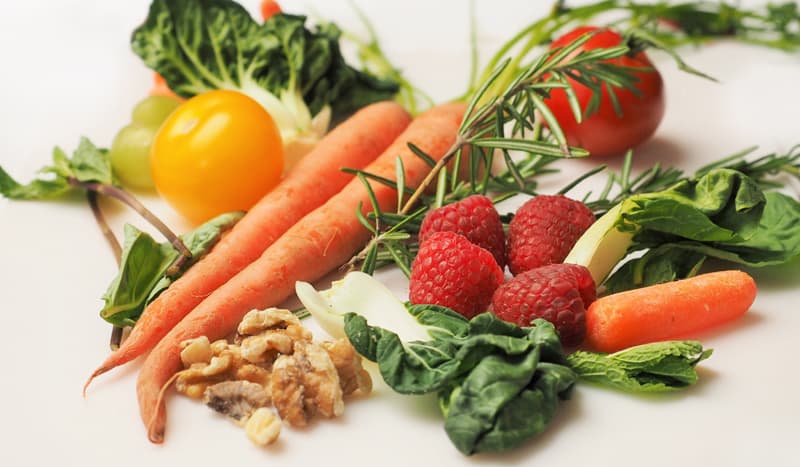What is Veganism?

Jeremy Corbyn recently said that he would consider becoming a vegan but would miss Somerset brie too much. So what is veganism, how does it differ from vegetarianism and what are the challenges?
So What Is Veganism?
Vegetarians do not eat meat fish or poultry. In contrast, vegans also do not eat or use any animal products including eggs, dairy products, honey, leather, silk, wool or soaps. People become vegan for many different reasons, for some it is religious, for others it is an ethical or health issue. But for many there is the feeling that by eating animal related products they are supporting the meat industry whose practices they disagree with.
Examples often given include the fact that once dairy cows or chickens get too old to produce they are sold for meat. So for many veganism is a way of life and represents their wish for a more kinder way to live alongside the other animals we share the planet with.
The Vegan Diet
You can get all you need from a vegan diet, but a little planning is needed to ensure you get all you need. Here we examine some of the areas that do need some planning to ensure they are covered in a vegan diet.
Protein
Protein is needed for the body for two main reasons, growth and tissue repair. Most non vegans will get their protein from eating meat and fish. Vegans get their protein from sources which include lentils, chickpeas, tofu, peas, peanut butter, soy milk, almonds, spinach, rice, and whole wheat bread.
Vitamin D
Vitamin D can be a challenge to get into the vegan diet but it is crucial to regulate the calcium and phosphate in the body. So sunlight, which produces vitamin D in the body becomes hugely important here. You can however obtain vitamin D fortified soy and rice milk and it is also present in some cereals. You may need to consider vitamin D supplements but do check that no animal products are in them.
Calcium
People who are not vegans will get their calcium from dairy foods. Vegans will get calcium in dark green vegetables like kale , tofu made from calcium sulfate, calcium fortified soy milk, tahini and almonds, pulses and brown and white bread as in the UK calcium is added to white and brown flour. You can also get it in dried fruit like raisins, prunes, figs and apricots.
Iron
Iron helps the body produce red blood cells Interestingly a vegan diet is high in iron but it should be noted that iron from plant based food is not as well absorbed by the body as iron obtained from meat. Vegans will get iron from pulses, wholemeal bread and flour, breakfast cereals, dark green leafy vegetables, nuts and dried fruits.
Vitamin B12
This vitamin occurs naturally in animal foods so you will need to ensure you get this as B12 keeps the body’s nerve and blood cells healthy. You will find B12 in breakfast cereals that have been fortified with it, yeast extract products like marmite which has B12 added and unsweetened soya drinks fortified with B12.
Is A Vegan Diet Healthy?
Research suggests that the average vegan diet is higher in vitamin C and fibre and lower in saturated fat than a non vegan diet. There is also evidence that vegans have a lower BMI. But there are risks, as we mentioned above you do need to work a little harder to ensure you get calcium, vitamin D, iron and B12 and many vegans will take supplements to ensure they get all they need. If you choose to become a vegan then be aware of the nutrients you need and plan how you will get them in your diet. If you don’t do this properly you will become deficient in one which can bring health issues.
Conversely if you choose to eat meat do be aware we are now advised to watch our consumption of red meat and replace it more with plant based proteins like beans and pulses, tofu, nuts and seeds. We are also advised to have some meat free days each week.
You Might Like
What Is Vegan Friendly Leather?
If you have decided to become a vegan and have got on top of your diet what about the clothes you wear? You may be interested to know that work is going on to produce vegan leahther.Should You Take Vitamin Supplements?
We are constantly bombarded with advertisments for vitamins and supplements that will either stop us getting a cold, or slow down the effects of ageing. But is it really worth taking extra vitamins?Vitamin D Pills Could Cure Colds
Latest research suggests that taking vitamin D pills could cure colds and flu. Check out all the latest research.What Is The Planetary Health Diet?
The planetary health diet is designed to keep us fit and healthy but also to be kinder to the planet. So what is it and what does it mean for our diets?Hair Transplants Explained
Confused or worried? This guide explains more about hair transplants and what they could do for you.
Useful Websites
- purewine.co.uk
Mail order suppliers of organic, vegetarian and vegan wines throughout the UK - Vegetarian Society UK
Registered charity committed to the promotion of the ethical, health and environmental benefits of a vegetarian diet, recipes, research, information and products - EcoCities.Net
Everyday resources for a way of life that respects the environment, vegetarian, alternative health, conservation, wildlife, vegan, organic resources, information and links - Add Your Website Here